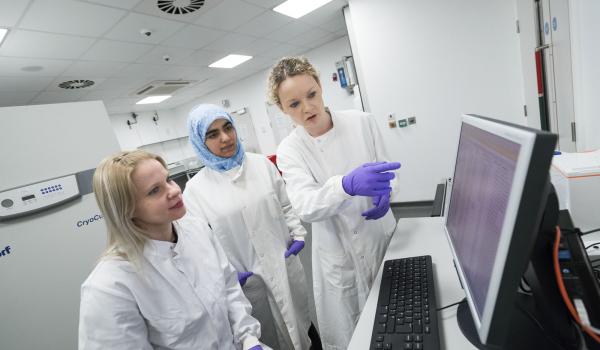Epidemiological Study of Familial Breast Cancer
Who can take part
Please note - unless we state otherwise in the summary, you need to talk to your doctor about joining a trial.
You may be able to take part in this clinical trial if you:
- have been identified through your GP as being at high risk of having a genetic mutation and have been referred to a clinical genetics service for counselling
- are a member of a family known to have a genetic mutation and have been referred to a clinical genetics service for counselling
- have had or will have testing for genetic mutations
- have declined a predictive gene test but have been counselled by a genetics clinic
This is not an exhaustive list. If you're interested in participating in a clinical trial, you should speak to your doctor about what other criteria might apply.
This study is interested in the following genes: BRCA1, BRCA2, PALB2, ATM, CHEK2, BRIP1, RAD51C, RAD51D, BARD1, PTEN, TP53 and CDH1.
About the trial
This study collects information about people who have inherited faulty cancer genes. Inheriting a faulty gene means that a person is at a higher risk of developing certain cancers.
A fault in the BRCA1 or BRCA2 genes means that a person is more likely to develop cancers of the breast, ovary or prostate. As well as the BRCA1 and BRCA2 genes, we now know that other genes are associated with breast and/or ovarian cancer risk. The risk from these other genes is generally much lower and not as well understood as BRCA1 and BRCA2.
The study looks to develop a register of BRCA1 and BRCA2 families. It also wants to create a register of families who have a fault in the other genes. This helps to find out more about their associated cancer type and risk.
Researchers hope to use the information collected during the study to find out:
- how many people go on to develop cancer
- what other factors may play a part in the development of cancer including lifestyle factors and the individuals’ genetic makeup
- how the cancer risk may be reduced
- how changes or markers in the blood could be used to be able to detect early cancer
The findings of this study will continue to collate information that will help doctors to decide the best way to care for someone who has these faulty genes.
If you take part in this study, you'll need to:
- fill in a questionnaire.
give blood samples which will be looked at in a laboratory.
This information was last reviewed on 12/01/2024. Please note that the status of clinical trials can change at short notice. You should always check with your clinical team which trials may be suitable for your situation.



